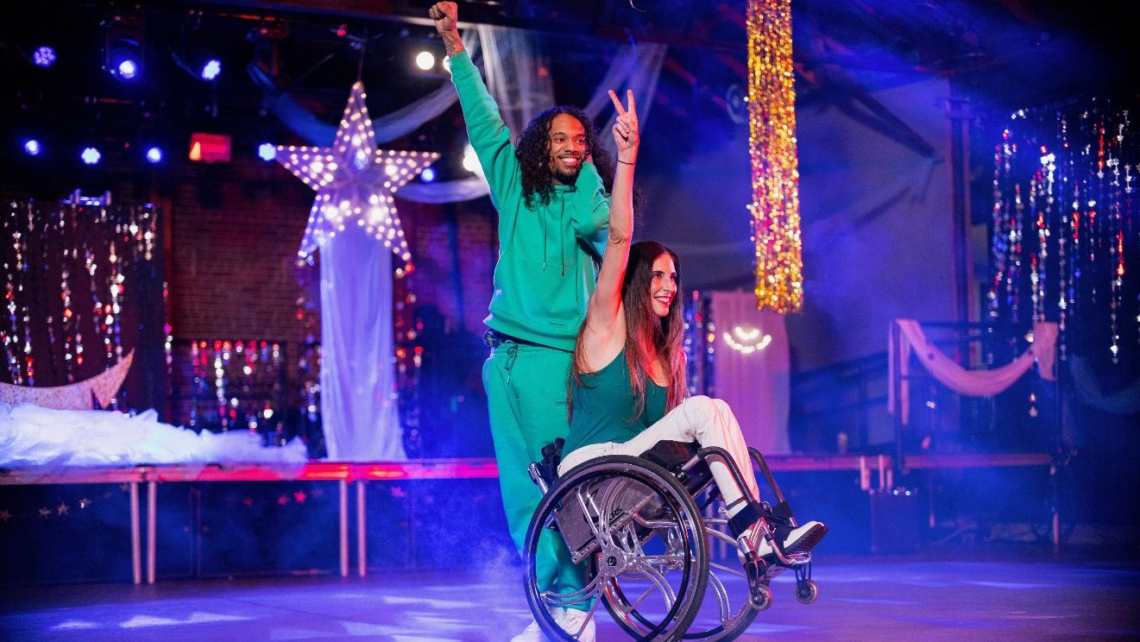Exploring the intersection of disabilities, representation, and film: A day at the Academy Museum
In a groundbreaking initiative, the Academy Museum of Motion Pictures is set to launch the Disabilities, Representation, and Film program on July 13, commemorating the Americans with Disabilities Act signed into law in July 1990. This day-long event, organized by Christiana Ybarra, the Academy Museum’s director of education and programming, aims to bring awareness to the often-overlooked narratives of individuals with disabilities in the film industry.
A day of enlightenment and engagement
The event promises a rich tapestry of activities, including workshops, museum tours, panel discussions, film screenings, and a live dance performance. The goal is to foster a deeper understanding and appreciation of the experiences of people with disabilities, both on and off the screen.
“Becoming disabled can happen to anyone at any time. When we look at the statistics, one in four people are disabled in this country. It’s a huge demographic that doesn’t get a lot of attention,” Ybarra said. “You don’t see a lot of representation of folks with disabilities on screen. And so I think, as a film museum, it’s our duty to share those narratives.”
The power of film as a tool for social change
Sound designer, producer, and Academy Member Jim LeBrecht, along with celebrity activist Lawrence Carter-Long, were instrumental in pitching the idea of disability-centered programming to Ybarra. What began as a modest proposal for a screening and a few workshops quickly evolved into a comprehensive, full-day event.
Ybarra emphasized the transformative power of film in building empathy and compassion for marginalized groups. She hopes the program will inspire participants to “learn more about what people are experiencing” and serve as a catalyst for making Hollywood a more inclusive industry.
Adaptive tours: A sensory journey through cinema
The program will feature three adaptive tours designed to provide an inclusive experience for all attendees. At 10:30 a.m. in the Netflix Lounge, a guided tactile experience will allow visitors to explore movie props through touch. At noon on the second floor, a visual description tour will highlight the “Stories of Cinema” exhibit, and at 1:00 p.m. on the third floor, an American Sign Language tour of “Stories of Cinema” will be available.
Workshops: Crafting inclusive narratives
Two workshops will be available to visitors at 11:00 a.m., focusing on creating visual descriptions for movies and tactile filmmaking. These sessions aim to equip participants with the skills to craft more inclusive and accessible narratives in their own work.
Infinite Flow: A dance performance that transcends boundaries
At 3:40 p.m., Infinite Flow, a Los Angeles-based professional dance company featuring both disabled and non-disabled dancers, will perform in the Sidney Poitier Grand Lobby. This performance promises to be a powerful demonstration of the beauty and strength that diversity brings to the arts.
Film screenings and discussions: Celebrating disabled filmmakers
Starting at 2 p.m., a curated selection of short films centered on disability will screen at the David Geffen Theater. Following the screenings, journalist Kristen Lopez will moderate a conversation on the accomplishments and history of disabled filmmakers. The panel will include Jim LeBrecht, Lawrence Carter-Long, animator and writer Jorge R. Gutierrez, founder and director of the Easterseals Disability Film Challenge Nic Novicki, and visual effects supervisor Kaitlyn Yang.
The day will conclude with a screening of “Crip Camp” at 6:30 p.m., followed by a Q&A session with director Nicole Newnham and Jim LeBrecht, who also worked on the film’s sound. Kristen Lopez will moderate the discussion, providing attendees with an opportunity to delve deeper into the making of this impactful documentary.
For more information on the Disabilities, Representation, and Film program, including tickets and a full schedule, visit the Academy Museum website.
Reflecting on the future of representation in film
As the day draws to a close, one can’t help but reflect on the importance of such initiatives in shaping a more inclusive and empathetic society. The Academy Museum’s Disabilities, Representation, and Film program is a significant step towards recognizing and celebrating the diverse stories that make up the fabric of our world. By bringing these narratives to the forefront, we can hope for a future where everyone, regardless of their abilities, sees themselves represented on screen.

 Italian
Italian







